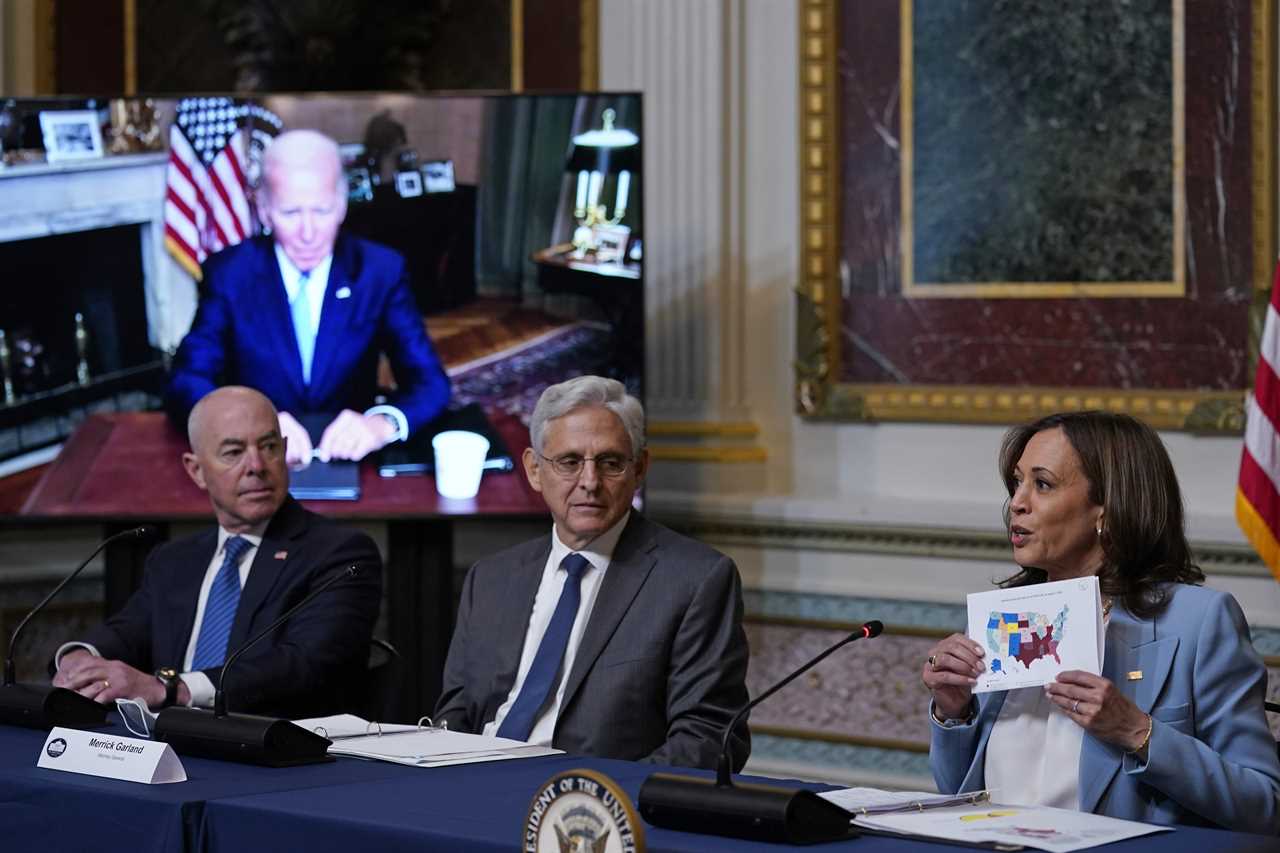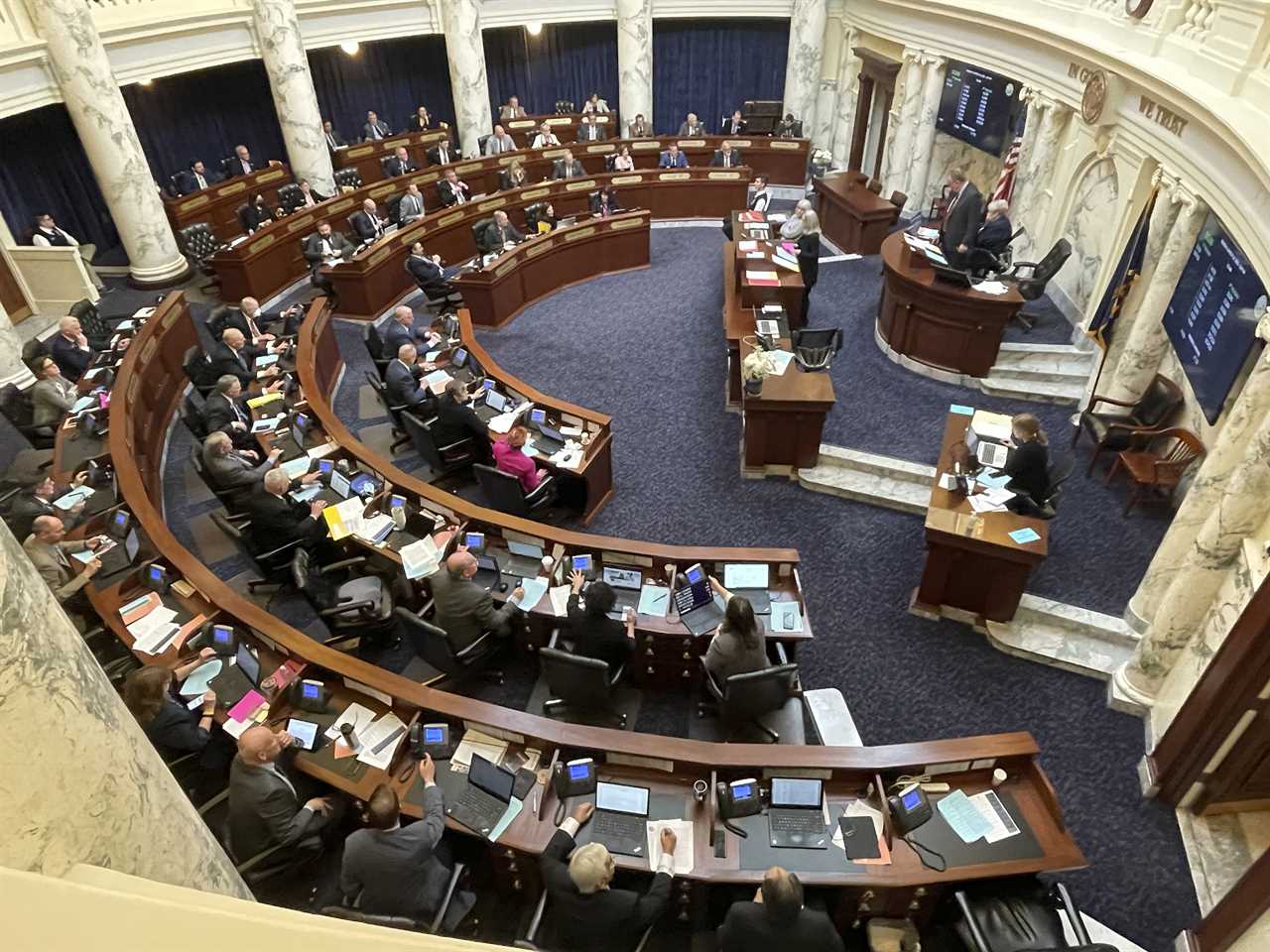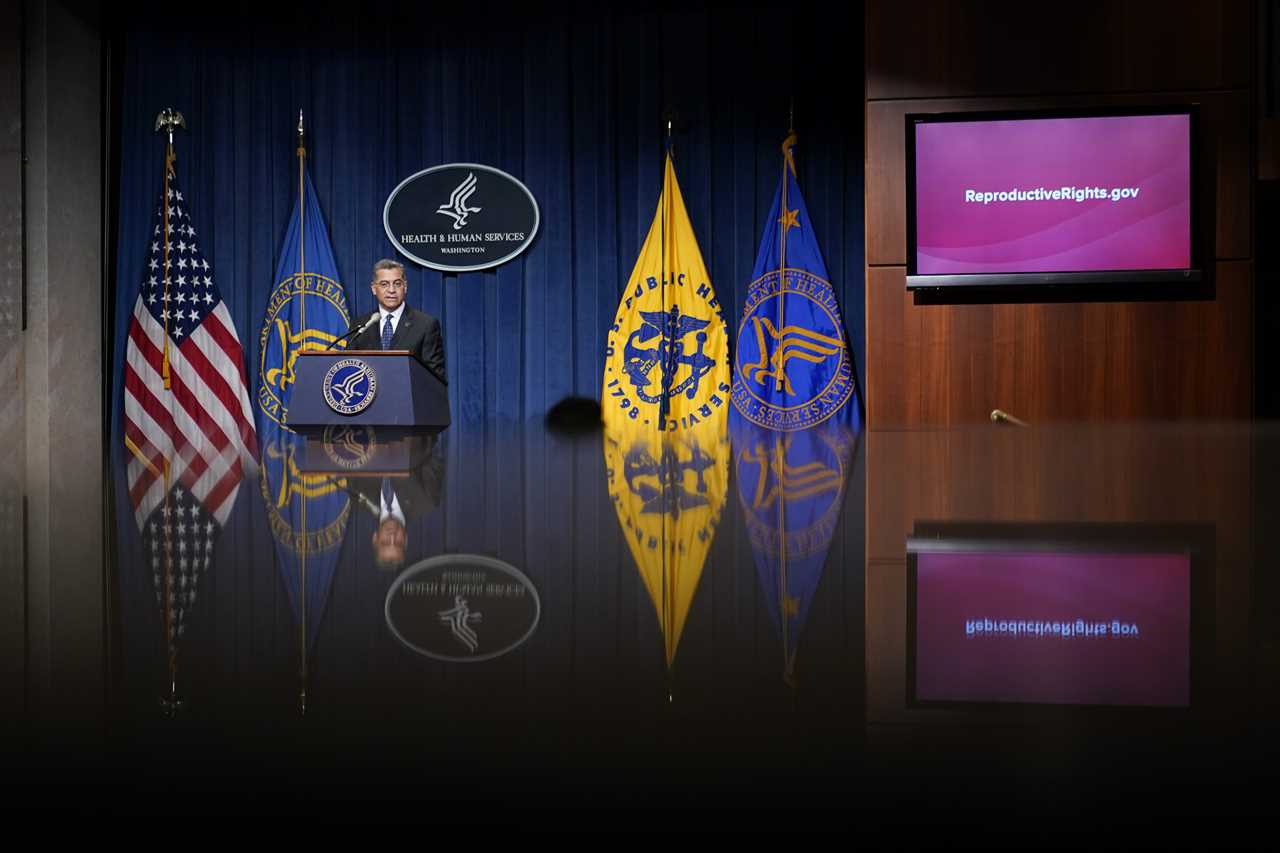
The Biden administration is offering the opportunity to use Medicaid to help cover costs for people who cross state borders for abortions.
States aren’t so sure they want to take it.
In the two months since President Joe Biden signed an executive order encouraging states to use the health insurance program to expand abortion access, no state has applied to do so.
POLITICO contacted 24 state Medicaid agencies where abortion is legal and its status is not in jeopardy. Health officials in 10 of those states said they are reviewing the federal government’s proposal and haven’t decided whether to apply. Massachusetts and Minnesota are waiting on additional federal guidance. North Carolina is not pursuing the policy and 11 states did not respond to requests for comment.
States’ reluctance to jump on the administration’s offer is the latest example of how the White House’s ability to mitigate what Biden has repeatedly called a “health care crisis” remains limited absent congressional action.
“There’s no question that part of the challenge here is there are real limits to executive branch authority,” said Andrea Miller, president of the National Institute for Reproductive Health. “They continue to try to find creative solutions, and they also continue to butt up against the limits of their authority, and that’s frustrating for everyone.”
Since the Supreme Court overturned Roe v. Wade in June, the Biden administration has used a federal law governing emergency medical care to challenge Idaho’s near-total abortion ban, warned pharmacists not to withhold prescription medications just because they can also be used to induce an abortion, and requested that mobile providers share information about their data retention and data privacy policies, among other efforts.

But the White House has largely been unable to preserve access for people who live in states with anti-abortion laws.
“We are trying to use every lever we have available to us to think about every possible solution there might be, however narrow. If it can even help one person, it’s worth considering,” a senior health official, who was granted anonymity to speak freely about the administration’s strategy, told POLITICO. “We’ve said, ‘Open door, you’ve got an idea, come to us,’ because we’re trying to help everyone we can in any way we can. But the reality is there is no silver bullet here.”
While many governors who support abortion rights are similarly committed to increasing access, health officials are debating whether the byzantine, monthslong process of obtaining a Medicaid waiver is the best way to help low-income, out-of-state residents seeking abortion care.
Some officials noted that seeking federal permission to cover additional benefits through Medicaid is a cumbersome process — and that their time and money may be better spent helping people in states with strict anti-abortion laws in other ways.
“The number of women that will be impacted in that specific circumstance … would be a pretty small number,” Deidre Gifford, commissioner for Connecticut’s Department of Social Services and senior adviser to the governor for health and human services, told POLITICO. “We’re continuing to refine our ideas, and we’re going to keep going back and forth with CMS about whether our ideas fit with something that would be helpful, and if so, we’ll move forward, and if not, we’ll continue what we are doing to expand and support access for women who need to travel from another state.”
Among the limitations state officials face is the Hyde Amendment, which prohibits federal Medicaid money from being used for abortions except in cases of rape, incest or to protect the pregnant person’s life.
Connecticut is therefore eyeing covering transportation and lodging for people seeking Hyde-eligible abortions who cannot obtain access to the procedure in their state. The median out-of-pocket cost for an abortion in 2021 ranged from $528 to $775, depending on whether the abortion was in the first or second trimester, according to the Kaiser Family Foundation. But patients can rack up hundreds of dollars in additional expenses for transportation, lodging, child care and other costs associated with traveling to another state.
It might be easier — and faster — for states to use their own tax dollars to help local organizations facilitate travel for out-of-state residents instead of jumping through the hoops needed to access federal Medicaid funds.
States and cities have already allocated millions to help their residents and out-of-state patients obtain abortions. Oregon lawmakers approved $15 million in grants to community organizations to support abortion access this spring. In May, New York Gov. Kathy Hochul announced $35 million in part to expand abortion provider capacity and ensure access for patients seeking abortions. Gov. Gavin Newsom signed legislation last week creating the California Reproductive Health Equity Program, which will allocate an initial $40 million in grants to providers who offer uncompensated abortion and other reproductive health care.
Local governments are doing the same. In July, St. Louis established a $1.5 million reproductive equity fund, partly to aid organizations that provide practical support, such as travel expenses and child care, to people who travel out of state to receive abortions. And New York City earlier this month approved $1 million to expand access to abortion care.

While state health officials say they are grateful that the Biden administration is engaged, none of the Medicaid agencies contacted by POLITICO have decided whether a waiver is the best solution to helping people who travel across state borders to obtain abortions.
“We remain in uncharted territory without further guidance from CMS. We don’t have any of the typical legal precedents that might help clarify this,” said Dianne Hasselman, interim executive director of the National Association of Medicaid Directors. “We aren’t aware of any statement from CMS that it won’t give further guidance, but we also don’t know if they will.”
Applying for a Medicaid waiver — also called an 1115 waiver because of the section in the Social Security Act that gives the health secretary authority to approve experimental programs — is complex and lengthy, involving significant back and forth between states and CMS. It takes a minimum of 30 days between when the state posts its waiver proposal publicly and when the state can submit its application to CMS, and federal approval takes a minimum of 60 days, according to an analysis by the Kaiser Family Foundation.
The latest state guidance was an August letter from HHS Secretary Xavier Becerra to governors reminding them of the waiver opportunity but providing no additional information about what the federal government would be interested in approving.
“This is a priority for HHS, and states interested in federal Medicaid funding to expand access to care within the scope of Medicaid’s legal authority for women traveling from a state that has restricted or prohibited abortion are encouraged to engage with the Centers for Medicare & Medicaid Services,” Becerra wrote.

State health officials say HHS could help by releasing a template or outline of what it would be willing to approve. Federal health officials counter that states should engage with them individually to develop solutions that fit their needs.
“We really need states to give us a little bit more info on what they would like. That’s coming through the various informal conversations that they're having with CMS,” a second senior health official said. “But, ultimately, we need something from them in order to act and help expand access.”
If a waiver were approved, states would need to make sure low-income, out-of-state residents know the assistance is available and help them through the approval process — when states already struggle to reach their own Medicaid-eligible residents.
And any attempt to expand abortion access through Medicaid would almost certainly face legal challenges.
Vikki Wachino, former CMS deputy administrator in the Obama administration, said if federal health officials release guidance that’s too specific, states could be discouraged from exploring other innovative approaches.
She also noted the waiver process takes time and that states might be able to pursue their own state-level funding approaches in tandem with seeking authority through Medicaid.
“The guidance has been out a month. I can’t think of a time when the federal government put up a new opportunity and had state responses a month later. It takes some time just on the states’ part to figure out how they want to approach it. Do they want to move forward? What does it mean for them and their delivery system and their finances?” Wachino said. “I would give it some time.”
----------------------------------------
By: Megan Messerly
Title: Biden wants to use Medicaid to address abortion ‘crisis.’ States aren't biting.
Sourced From: www.politico.com/news/2022/10/04/biden-medicaid-abortion-crisis-00060131
Published Date: Tue, 04 Oct 2022 03:30:00 EST
Did you miss our previous article...
https://consumernewsnetwork.com/politics-us/-a-dangerous-idea-to-punish-putin






